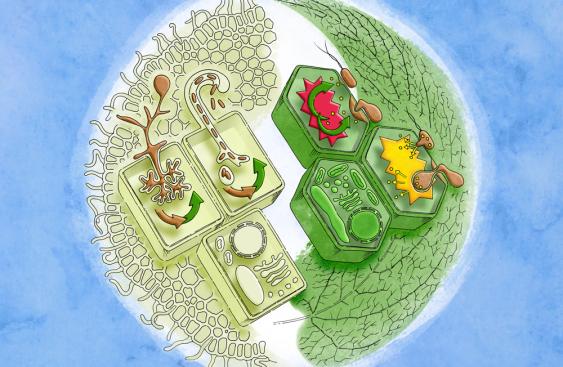Meeting report
Seeing is believing: cell biology at the plant–microbe interface
Mike Deeks, Clara Sánchez‐Rodríguez
Scope
Plant organs are subject to colonisation and manipulation by microbes, and this requires reprogramming of host cell biology to accommodate microbial structures within tissues/cells and to mediate responses for proper immunity or for symbiosis. Host cell biology changes during microbial invasion were first reported more than 100 years ago based on microscopy studies revealing that many microbes project structures (haustoria, arbuscules) into plant cells that are enveloped with a specialized plant-derived membrane and evidence now suggests an intimate molecular exchange takes place across these membrane interfaces. However, recent identification of some of the molecular players in these interactions is only now providing appropriate tools to analyse these events. The symposium focused on advances in understanding the molecular interactions that occur between a microbe and its host at a cellular and subcellular level, such as:
how root and leaf cells accommodate microbial structures through biogenesis of specialized plant derived membranes,
microbial invasion and spreading strategies (via stomata, roots, vasculature, plasmodesmata),
the dynamic localization of cell surface and cytosolic receptors recognizing microbial signals
the reprogramming of host membrane trafficking (focal accumulation, secretion),
the delivery of microbial molecules from fungal and oomycete species into plant cells.
Organising committee
The Sainsbury Laboratory, Norwich, UK | |
CSIRO Plant Industry, Black Mountain, Australia | |
Boyce Thompson Institute for Plant Research, Cornell University, Ithaca, NY, USA |
Parts of this page may have been imported from a previous website. If you spot any errors on this page please contact us using the link below.


